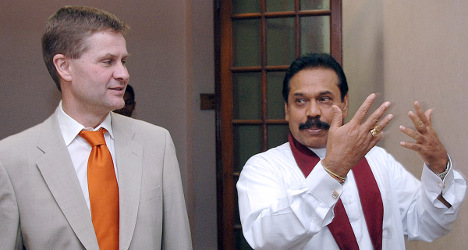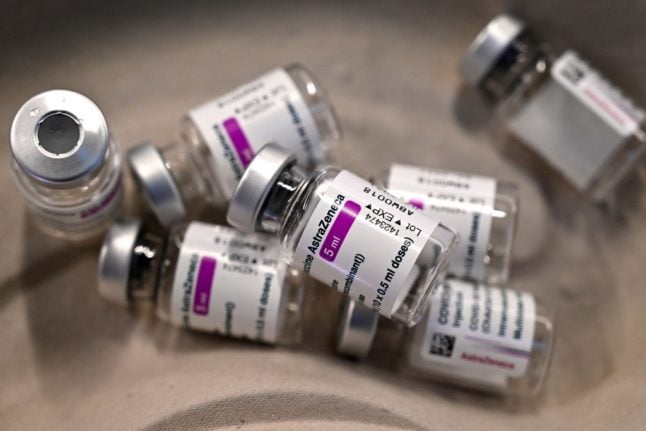Norway's Erik Solheim said he was prepared to give evidence on the final months of Sri Lanka's decades-long war which he had tried but failed to resolve peacefully.
Solheim told a newspaper that atrocities were committed in the final months, including shelling of hospitals in the battle zone and executions of surrendering rebels.
"The war was won at a tremendous cost and I will (act as a) witness before any recognized international tribunal investigating Sri Lanka," Solheim told the local Ceylon Today weekly.
"Such atrocities cannot be buried without conducting investigations into them" he said.
"Time cannot pass on without probing these alleged crimes."
Solheim, a former international development minister, confirmed the report in an email to AFP.
The UN Human Rights Council in March voted in favour of setting up an international probe to look into allegations that up to 40,000 Tamil civilians were killed in the final stages of the war, a charge Colombo vehemently denies.
A team of investigators is expected to be named shortly, but Colombo opposes any foreign inquiry.
Solheim's mission was formally aborted by Colombo in April 2009, a month before the end of war between the military and Tamil Tiger rebels.
Sri Lanka's war ended after a bloody finale by the military against the rebels fighting for a separate homeland for the ethnic Tamil minority.
Solheim did not give details of any evidence he would provide to an investigation. He said he was aware of a top Tiger leader who tried to surrender during the final stages of the war, but had been killed.
Solheim said he had asked Tamil Tiger supremo Velupillai Prabhakaran in the final four months to accept an "organised end to the war," or a surrender, which could have saved tens of thousands of lives.
"The war could have been solved through peace talks without military action," he said.
Norway was invited to broker peace in Sri Lanka in December 1999. Solheim raised hopes of a peace breakthrough when he announced on November 1, 2000 that the elusive Tiger chief Prabhakaran was serious about talks.
A ceasefire arranged by Norway was torn up after Tamil Tigers tried to assassinate then army chief Sarath Fonseka in April 2006, a move that drew strong retaliatory attacks from government forces.



 Please whitelist us to continue reading.
Please whitelist us to continue reading.
Member comments